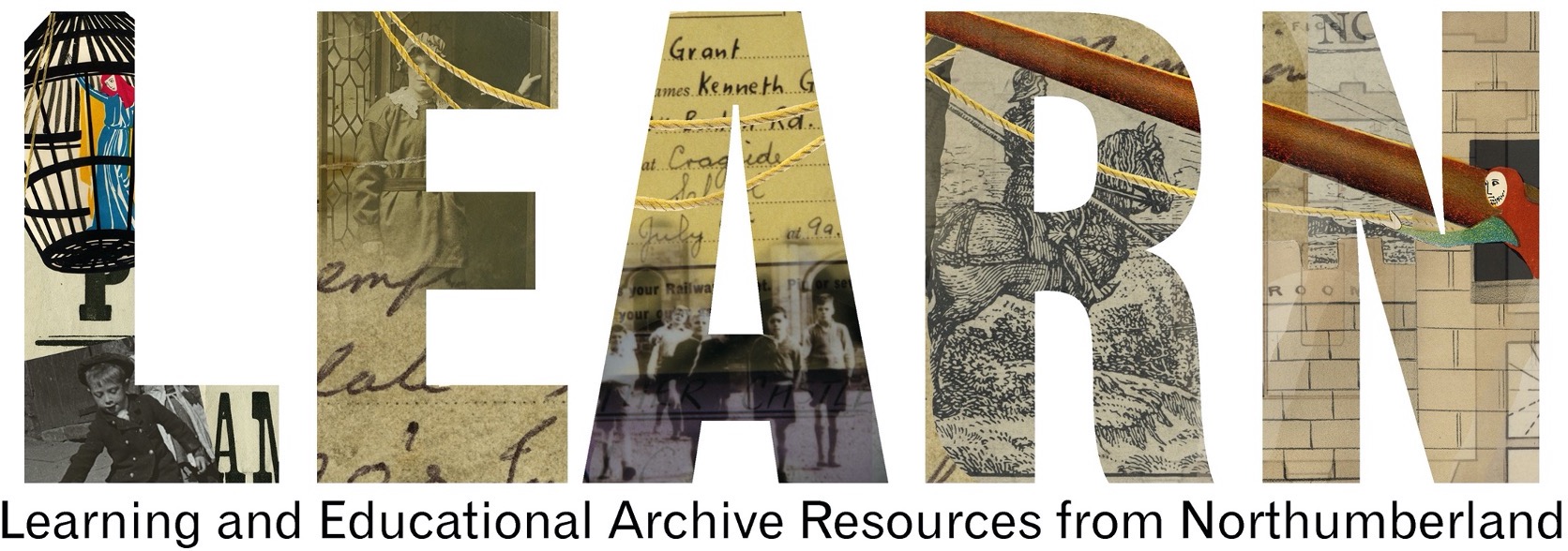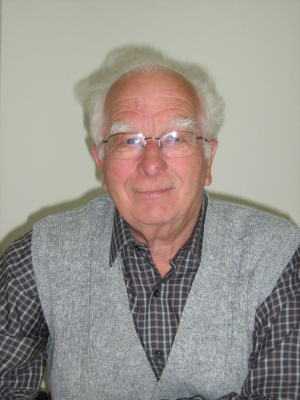Evacuation Oral Histories – Stan R, Recorded 2008
Reference: T/528
Suggested age groups: KS1, KS2, KS3, KS4, Lifelong Learners
Subject areas: WW2
Download Word Document
Download PDF
Stan R – T/528 – Part 1
Stan R – T/528 – Part 2
Stan R – T/528 – Part 3
Stan R – T/528 – Part 4
CONTEXT
These sound files are extracts (short edited pieces) from longer oral history interviews that Northumberland Archives recorded. These interviews were recorded as part of a project to record the memories of people who had been evacuated to Northumberland as children during the Second World War.
For each person there is a short extract where they introduce themselves and one more extracts where they talk about their experience of being an evacuee.
Stan is from Tottenham and was born during the mid-1930s. He is the youngest of 7 children.
Stan was first evacuated to a farm in Cambridgeshire in 1939 with his older brother.
Stan tells a story about being given Yorkshire pudding as a starter by host family during Sunday dinner.
Stan had family friends who lived in Bedlington Station that his parents had met during the First World War.
Stan travelled up with his mother and two sisters who left him to stay with “Uncle Dave” and his second wife at 10 Jubilee Terrace, Bedlington Station.
Stan arrived in 1944 after staying at two other places previously, and time at home in between. He stayed in Bedlington Station until after VE Day.
Stan was treated very well and made friends. He mentions going to school which was near the railway bridge and the cinema. The school was wooden and has since been burned down.
Stan received a school report saying that he settled down very well under difficult circumstances.
Stan had a positive experience of evacuation and described it as “one big barrel of fun”.
Stan mentions life at school, tells an anecdote about the Headmaster calling him a “nincompoop”, mentions that the kids all spoke Geordie. He settled in straight away and got on well with his schoolmates.
Stan talks about his family coming to visit him in Bedlington. His sisters brought him “candies” that they got from American Soldiers.
His sisters went dancing in Whitley Bay at the dance hall when they came to visit.
ACTIVITIES
ACTIVITY 1
Background
Stan from Tottenham was born during the mid-1930s. Stan was first evacuated to a farm in Cambridgeshire in 1939 with his older brother. He was later evacuated to stay with family friends in Bedlington Station.
SEE
See: When was Stan born?
See: Where did Stan live?
See: When was Stan first evacuated?
See: About how old was Stan when he was first evacuated?
See: Where was Stan first evacuated to?
See: How many times was Stan evacuated?
See: Where was Stan last evacuated to?
THINK
Think: Why were children evacuated during the Second World War?
Think: Who else, other than children, were evacuated during the Second World War?
Think: What types of areas were people evacuated from?
Think: What types of areas were people evacuated to?
Think: What types of factors were taken into consideration when deciding where children were evacuated from and where they were taken to?
Think: Do you think it was a good idea to evacuate Stan to Cambridgeshire and Bedlington Station?
DO
Do: Look at the data gathered by the War, State and Society Bombing Britain website, can you sort the data so that you can only see the bombings that took place in Tottenham?
Do: Look at the data gathered by the War, State and Society Bombing Britain website, can you sort the data so that you can only see the bombings that took place in Cambridgeshire?
Do: Look at the data gathered by the War, State and Society Bombing Britain website, can you sort the data so that you can only see the bombings that took place in Bedlington?
Do: Using the data from War, State and Society Bombing Britain, create a table comparing the bombing data from Tottenham, Cambridgeshire and Bedlington.
Do: Create a map and label it to show Tottenham, Bedlington and Cambridgeshire. Identify the characteristics of each area that show that it was somewhere that children would be evacuated to or from.
Do: Create an argumentative piece of writing arguing either for or against evacuating Stan from Tottenham to Cambridgeshire or Bedlington. Can you use evidence from the map and data from your table to back up your argument and state where the safest place for Stan would have been?
Resources
http://www.warstateandsociety.com/Bombing-Britain
https://www.genuki.org.uk/big/eng/NBL/Evacuation/intro
https://www.iwm.org.uk/history/the-evacuated-children-of-the-second-world-war
https://www.youtube.com/watch?v=ZPs8hbksOg8
https://www.bbc.co.uk/teach/school-radio/history-ks2-world-war-2-clips-ww2-evacuation-index/zvs3scw
ACTIVITY 2
Background
Stan Rondeau from Tottenham was born in 1933. Stan was first evacuated to a farm in Cambridgeshire in 1939 with his older brother. He was later evacuated to stay with family friends in Bedlington Station.
SEE
See: Who did Stan stay with in Bedlington Station?
See: How long did Stan stay in Bedlington Station?
See: Who came to visit Stan in Bedlington Station?
See: What did Stan’s sisters bring him?
See: What did Stan’s sisters do when they came to visit?
See: Did Stan have a positive evacuation experience?
THINK
Think: Why was Stan evacuated more than once and why did he go home in between evacuations?
Think: Think about how Stan might have felt about being apart from his family for so long. Write down a list of words that he might have felt about being apart from them. Is there any evidence in his oral history that hints at how he might have felt?
Think: Imagine you were in Stan’s position, being evacuated far away from your family. How would this make you feel? How would you keep in touch with them?
Think: How was the evacuee experience shaped by the host family the child was placed with?
Think: Do you think interacting with American soldiers in Britain had an impact on British culture?
DO
Do: Think about how some evacuees had positive evacuation experiences and some had negative experiences. Role play a conversation between two evacuees with opposing experiences. Think about what might have caused these differences, such as their life at home, their background, where they were hosted and who they were hosted with.
Do: Create a map showing the distance that Stan travelled from Tottenham to Cambridgeshire and Tottenham to Bedlington Station. How far away was Stan for his family and how long was he apart from them for?
Do: Write a list of local words that would stand out as unusual to someone not from the area.
Do: Write a list of typically American words that have been adopted by the British.
Do: Create a presentation showing the impact that American GI’s in Britain had on popular culture. This could include introducing new foods/drinks, music, dancing and entertainment items.
Do: Have a go at the Jitterbug dance.
Do: In groups create a script showing American GI’s interacting with British people. Perform your script.
Resources
https://www.bbc.co.uk/news/magazine-20160819
https://www.iwm.org.uk/history/tips-for-american-servicemen-in-britain-during-the-second-world-war
https://www.britannica.com/art/jitterbug
https://dance.lovetoknow.com/Jitterbug_Dance_Steps
https://www.iwm.org.uk/history/the-evacuated-children-of-the-second-world-war
https://www.youtube.com/watch?v=ZPs8hbksOg8
https://www.bbc.co.uk/teach/school-radio/history-ks2-world-war-2-clips-ww2-evacuation-index/zvs3scw
ACTIVITY 3
Background
These sound files are extracts (short edited pieces) from longer oral history interviews that Northumberland Archives recorded. These interviews were recorded as part of a project to record the memories of people who had been evacuated to Northumberland as children during the Second World War.
For each person there is a short extract where they introduce themselves and one more extract where they talk about their experience of being an evacuee.
SEE
See: Why were these oral histories recorded?
See: Who took part in these oral history interviews?
See: What is included in the oral history extracts?
THINK
Think: What is an oral history?
Think: Why is it important to record oral histories?
Think: What is the value of oral histories?
Think: Who might use oral histories?
Think: How reliable are oral histories?
Think: What types of oral histories might be recorded?
DO
Do: Imagine you are about to interview a former evacuee for an oral history. Write down a list of questions or talking points that you might use to prompt them during the interview.
Do: Write down a list of events that have taken place during your lifetime that you think it would be important to create oral history records of.
Do: Write down a list of events that have taken place before your lifetime that you think it would be important to have oral history records of.
Do: Look at the British Library, British Library Sounds and Imperial War Museum websites. Can you find oral history recordings about the events from your lists?
Do: Think of an event that you have experienced first-hand. In pairs, interview each other about your chosen events and create oral history recordings.
Do: Imagine you are Stan, choose one part of his oral history interview and write a diary entry from his perspective of one of the events he describes.
Resources
OTHER ONLINE RESOURCES
Evacuation
Imperial War Museum website, page about child evacuation: https://www.iwm.org.uk/history/the-evacuated-children-of-the-second-world-war
You Tube website, British Pathe film of children being evacuated: https://www.youtube.com/watch?v=ZPs8hbksOg8
BBC Teach website, includes radio report of evacuation and interviews with children and host families: https://www.bbc.co.uk/teach/school-radio/history-ks2-world-war-2-clips-ww2-evacuation-index/zvs3scw
Rationing
Imperial War Museum website, page about rationing during the Second World War: https://www.iwm.org.uk/history/what-you-need-to-know-about-rationing-in-the-second-world-war
BBC Bitesize website, page about rationing: https://www.bbc.co.uk/bitesize/guides/z6ctyrd/revision/3
Oral History
Website for Oral History Society, includes definition of oral history: https://www.ohs.org.uk/
University of Leicester information sheet on oral history (pdf). Although the language isn’t the most accessible it does discuss value and reliability of oral histories: https://www.le.ac.uk/ur/emoha/training/no1.pdf
Website for Glasgow Women’s Library, blog discussing oral history project, includes definition: https://womenslibrary.org.uk/2017/08/09/what-are-oral-histories-and-why-are-they-important/
British Library website, page for oral history collections: https://www.bl.uk/collection-guides/oral-history
British Library Sounds website, includes oral history recordings: https://sounds.bl.uk/Oral-history
Imperial War Museum website page for oral history collections, one of the biggest oral history collections in the country. Many can be searched and listened to online: https://www.iwm.org.uk/collections/sound


